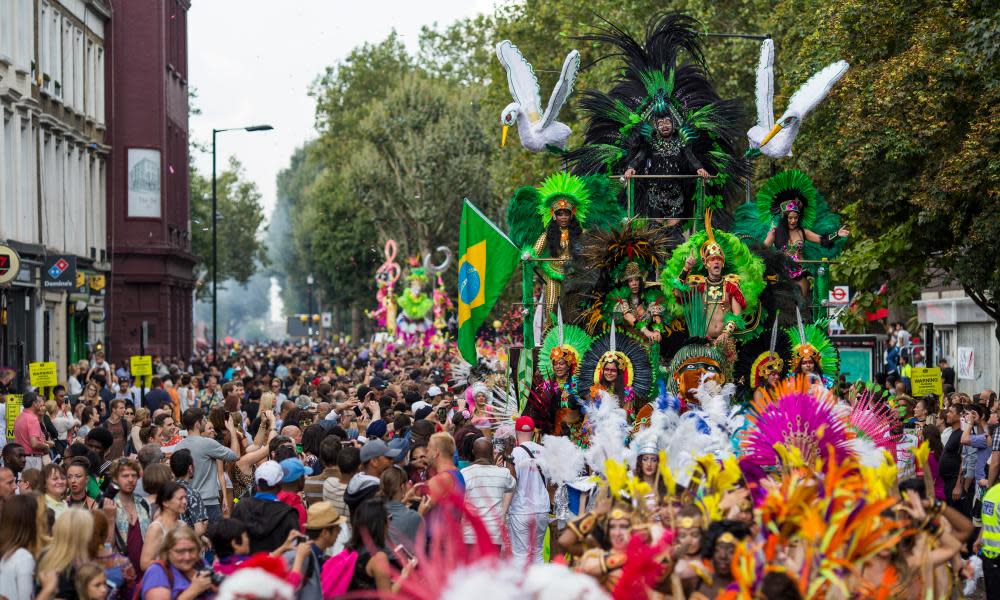At-risk London youths sent on holiday over Notting Hill weekend

Young people deemed to be at risk of getting caught up in crime and disorder during the Notting Hill carnival this weekend are being removed from the area and invited to a watersports weekend at a cost of more than £1,000 each, the Guardian has learned.
Fifteen young people aged from 13 to 17 have been selected for the trip, which is costing the Royal Borough of Kensington and Chelsea £20,000.
The council said the Alternative to Carnival Engagement (ACE) project was an effective way of protecting vulnerable young people from harm.
On Tuesday morning 26 people were arrested as part of what police said was a wider crackdown on drug-related crime, involving 290 arrests in total, aimed at reducing the risk of trouble at the carnival.
The ACE project, organised by the social enterprise Epic CIC – formerly the council’s youth service – has been running for five years, and police routinely make arrests before the carnival, which is the second largest in the world after Rio and attracts more than 2 million people.
The 2017 event is under heavy scrutiny as it comes soon after the fire at nearby Grenfell Tower. There have been questions about the best way for the event to take stock of the disaster.
Local people are asking revellers to wear green as a gesture of solidarity with victims and survivors of the fire.
Daniel Renwick, a youth worker in the Ladbroke Grove area where the carnival takes place, expressed concern about the ACE scheme. He said that although it was preferable to provide positive activities for the group rather than subject them to dawn raids by the police, there were concerns about how they were selected. “There are questions about whether or not the information on that database [from which participants are selected] is always correct,” he said.
He added that increased police activity in the run-up to the carnival was very noticeable. “Watching police question young people in the shadow of the husk of Grenfell Tower somehow feels post-apocalyptic,” he said.
A council spokesman said: “This year 15 young people were referred to the ACE project. These 15 young people have been engaged since May of this year. Some of these young people will be taken on a residential trip over the carnival weekend, and some are being taken out of the country by family, depending on their individual needs. The project is voluntary.
“In the months before carnival this group of young people are supported with one-to-one mentoring, independent living skills, healthy eating, as well as knife and gang awareness sessions. On the residential weekend young people access a number of activities such as water sports and kayaking. The engagement does not solely focus on carnival, but seeks to work with them both before and after carnival.”
He added: “Referrals are received from a range of partners such as youth clubs, social services, youth offending teams, police, schools and other services. These are young people who colleagues are concerned may be vulnerable to being victims of violence or exploitation over carnival weekend. The emphasis is on safeguarding young people and protecting them from any harm.”
The spokesman said Epic CIC would continue to provide support to the young people after carnival weekend.
A Metropolitan police spokeswoman said she believed the Kensington and Chelsea ACE scheme was the only one of its kind in London, although the carnival is attended by people from all over the capital and beyond.
Another Met spokesperson said: “The police are sometimes involved when it comes to suggesting young people who might benefit from the scheme, but we do not organise it.”

 Yahoo News
Yahoo News 